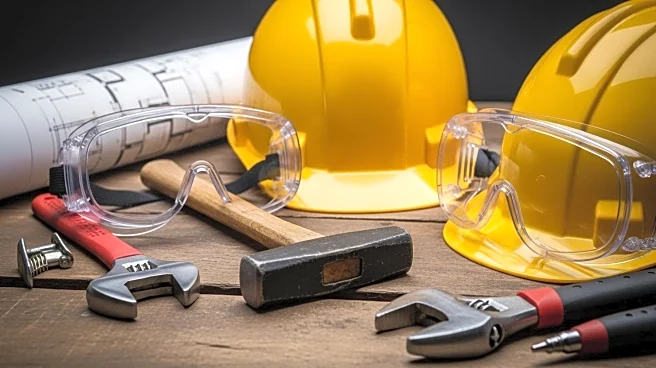What is the story about?
What's Happening?
The Missouri & Kansas Laborers District Council (MKLDC) is enhancing its workforce training efforts through the Laborers and Contractors Training Center, located on a 225-acre campus. This facility serves as a cornerstone for skills development among union laborers in Missouri and Kansas, training over 14,000 members. The center operates on an 'earn as you learn' model, allowing apprentices to earn pay and benefits while training, which contrasts with traditional education pathways that often lead to student debt. The training program spans two to two-and-a-half years, focusing on hands-on experience in various construction skills, including concrete work, pipe laying, and advanced equipment operation. State lawmakers and contractors recently toured the facility, highlighting its role in addressing Missouri's workforce challenges and supporting the state's economy.
Why It's Important?
The training center is crucial for developing a skilled workforce to meet the growing demand for construction workers in Missouri. By providing apprentices with practical skills and a debt-free education, the program supports economic stability and growth. It also strengthens the construction industry by ensuring a steady supply of qualified workers. The initiative aligns with Missouri's rejection of 'right-to-work' policies, emphasizing fair wages and strong benefits. The program's success could serve as a model for other states seeking to enhance workforce development and support unionized labor.
What's Next?
The continued expansion of the training center's programs is expected to further bolster Missouri's construction workforce. As more apprentices complete their training, the state can anticipate a rise in skilled labor availability, potentially leading to increased infrastructure projects and economic growth. Lawmakers and industry leaders may continue to advocate for similar programs to address workforce shortages in other sectors.
Beyond the Headlines
The training center's approach to workforce development highlights the importance of union-led initiatives in promoting fair labor practices and economic equity. By offering a pathway to stable careers without debt, the program contributes to broader social and economic benefits, including improved living standards and community development.


















